How To Use Essential Oils To Treat Sinus Infections
Choosing the right essential oil can make a world of difference to your blocked sinuses.
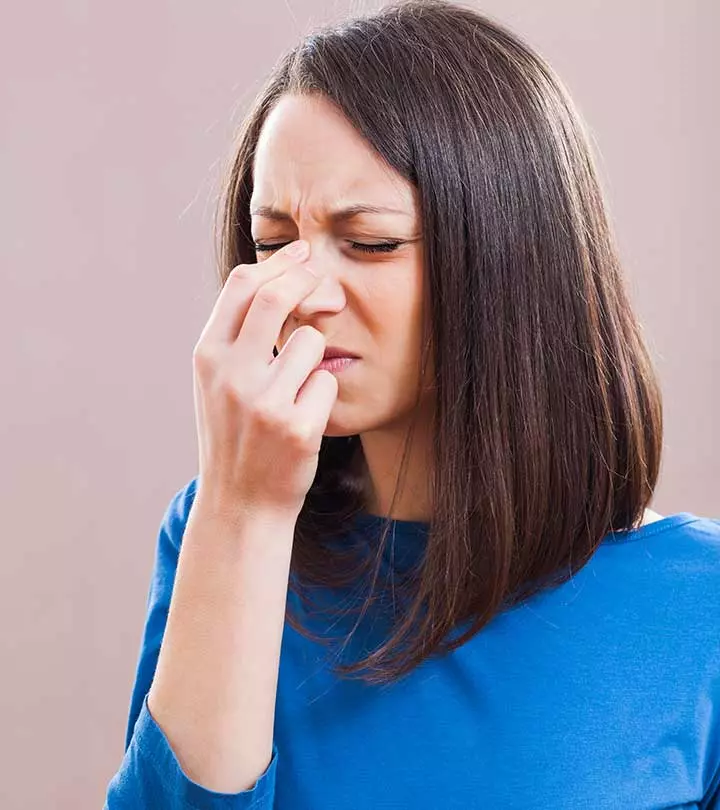
Image: Shutterstock
If you are suffering from blocked or a runny nose and a splitting headache, you are probably suffering from a sinus infection. If sinus infections are a regular occurrence for you, it can be quite annoying and frustrating. The great news is that you can manage your sinus infection with just a few essential oils in your pantry. These oils have become popular as natural remedies for sinus infections, thanks to their therapeutic properties. Research shows they may help ease symptoms like congestion and inflammation, offering a natural alternative for those looking for relief without relying on medication (1). In this article, we take a look at the symptoms of sinus infection and a few essential oils you may try to get some relief.
In This Article
What Is A Sinus Infection?
The sinus is a cavity within the bones or tissues that make up your face or skull. These cavities are usually filled with air. When the sinuses are blocked and filled with fluid, microbes can grow and cause infection, leading to inflammation of the tissues lining your sinus. This condition is also known as sinusitis.
Sinus infections are classified into different types based on how long the infection lasts.
Key Takeaways
- Fungi, nasal polyps, and exposure to allergens cause sinus infections.
- Pain, headache, sore throat, and fever are a few symptoms of sinus infections.
- Essential oils like lavender, rosemary, and clove may help reduce these symptoms and stop them from being aggravated.
- Always dilute essential oils in carrier oils like coconut oil before using them.
Types Of Sinus Infection
- Acute sinusitis: This type of sinus infection usually lasts for 2-4 weeks and is often accompanied by a runny nose and facial pain.
- Subacute sinusitis: This lasts for about 4-12 weeks.
- Chronic sinus infection: This takes 12 weeks or longer to heal.
- Recurrent sinusitis: This infection occurs several times throughout the year.
A study conducted on 834 subjects found that 107 individuals (12.8%) were diagnosed with chronic rhinosinusitis (CRS) according to the European Position Paper on Rhinosinusitis and Nasal Polyps (EPOS) guidelines. Further, it was found that allergic rhinitis was reported by 167 (20%) subjects.
In the next section, we have discussed the causes behind the development of a sinus infection.

Causes Of Sinus Infection

- Any infection in your upper respiratory tract can cause an acute sinus infection. Allergens, pollutants, viruses, and bacteria are the main culprits. The viruses damage the lining of the sinus, leading to inflammation and obstruction of the nasal passage that connects the sinuses. This obstruction allows the bacteria to multiply within the sinus and causes an infection. Allergens and pollutants also show a similar effect.
- Fungi are the major cause of a chronic sinus infections. Individuals with weak immunity are more susceptible to such infections.
- Pre-existing medical conditions, such as the common cold and nasal polypsi A condition with soft, painless, noncancerous growths on the nasal passage lining found in asthma, allergy, and repeat infection cases. , can also cause sinus blockage.
When you have sinusitis, you experience a range of signs and symptoms. The most common ones discussed below.
Signs And Symptoms Of A Sinus Infection

The signs and symptoms that accompany a chronic sinus infection are the same as that of acute sinusitis. However, the symptoms last much longer and are more severe. The common signs and symptoms of a sinus infection include:
- Congestion of the nasal passage
- A sore throat that is often accompanied by post-nasal dripi A condition in which an abnormal quantity of mucus gathers and drips down the back of the throat. It may lead to a chronic cough.
- Facial pain
- Aching ears
- Headaches
- Bouts of coughing that cause pain
- Fever
- Face becomes swollen
- Dizziness
Sinus infection, especially the chronic kind, can cause issues and hamper overall wellness and daily life. One of the best ways to treat a sinus infection naturally is using essential oils. Read on to find some of the best essential oils that can be used in the treatment of sinusitis and its symptoms.
How To Treat Sinus Infections With Essential Oils

Essential Oils For Sinus Infections
Some of these essential oils are safe to apply inside your nose along with a carrier oil. However, do a patch test if you are allergic to any essential oils, as they are commonly used in home remedies for sinus infections listed below.
1. Eucalyptus Oil
Eucalyptus oil is beneficial in treating sinus infections. Eucalyptol is one of the most significant compounds in this oil that has a minty fragrance and is widely used in cough syrups and throat drops. It is extremely effective in clearing blocked passages (2). You can use eucalyptus oil for sinus congestion as it possesses antispasmodici A class of medicines used to relieve, prevent, or lower abdominal pain symptoms, including involuntary muscle spasms and cramps. antimicrobial properties, making it a great choice to help relax the overworked chest muscles and fight infections (3). This oil is also relatively safe to use on toddlers (3 years and older) in moderation.
You Will Need
- 3-4 drops of eucalyptus oil
- 1 bowl of hot water
What You Have To Do
- Add a few drops of eucalyptus essential oil to a bowl of hot water.
- Cover your head with a bed sheet or blanket and close your eyes and bend over the bowl.
- Inhale the hot steam.
How Often You Should Do This
Do this whenever you want to get relief from congestion.
2. Peppermint Oil
Peppermint oil
is quite popular for its wide range of medicinal uses. It contains menthol that exhibits decongestant properties (4). Peppermint oil has antibacterial, anti-inflammatory, antispasmodic, and expectorant properties, all of which can help relieve the symptoms of sinusitis (5).
You Will Need
- 3-4 drops of peppermint oil
- Diffuser
What You Have To Do
- Add four drops of peppermint essential oil to a diffuser.
- Inhale the air dispersed from the diffuser.
How Often You Should Do This
Do this once daily.
3. Lemon Essential Oil
Lemon essential oil is one of the best essential oils for sinus infections. This oil is extracted from the lemon rind and exhibits amazing antibacterial and decongestant properties (6). These properties can help manage sinus infections and improve your immunity by fighting other bacteria that may try to invade your body.
You Will Need
- 25-30 drops of lemon essential oil
- Humidifier/Vaporizer
What You Have To Do
Add 25-30 drops of lemon essential oil to a humidifier and place it in your room.
Note: Lemon essential oil contains limonenei A major component in citrus fruit peel oils used as an ingredient in household cleaning and personal hygiene products. , which can degrade certain plastics. Make sure you check with the manufacturer if the unit is compatible with essential oils.
How Often You Should Do This
Do this once daily, preferably before bedtime.
4. Lavender Oil
Lavender oil
has a pleasant fragrance and exhibits natural anti-inflammatory, antimicrobial, antibacterial, and analgesic properties (7). It can also be used as a decongestant to clear the blocked nasal passages and relieve sinus infection.
You Will Need
- 8-10 drops of lavender essential oil
- Epsom salt
- Water
What You Have To Do
- Add a few drops of lavender essential oil and Epsom salt to your bathwater.
- Soak in the bath for 15-20 minutes.
How Often You Should Do This
Do this at least 3 times a week.
5. Oregano Oil
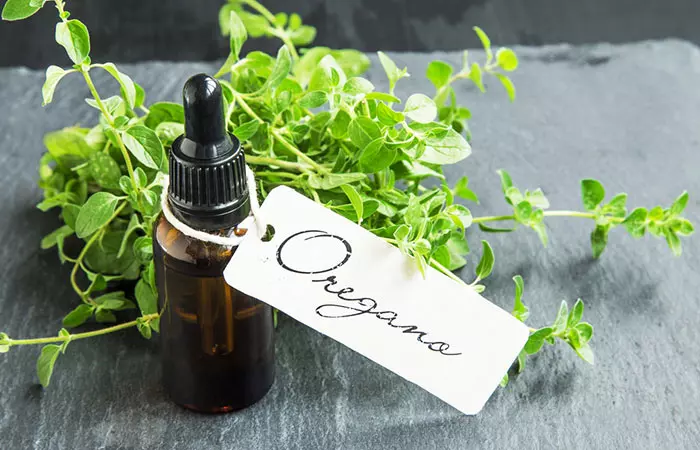
Oregano oil has high phenol content and is often used for its distinct flavor. It also has antibacterial and antimicrobial properties (8). These properties can help treat sinus infection and its symptoms.
You Will Need
- 1-2 drops of oregano oil
- 1 teaspoon of sweet almond oil or fractionated coconut oil
What You Have To Do
- Mix a drop of oregano oil with a teaspoon of any carrier oil.
- Massage this mixture onto your nose and chest.
How Often You Should Do This
Do this at least 1 to 2 times daily.
 Quick Tip
Quick Tip6. Rosemary Oil
Rosemary oil contains eucalyptol, alpha-pinenei A plant-derived fragrant molecule with potential anti-inflammatory, antimicrobial, antimetastatic, and antibiotic properties. , and camphor, which are all beneficial for the respiratory system (9). It also has anti-inflammatory properties (10). This can help reduce the sinus infection and relieve the inflamed nasal passages.
You Will Need
- 2-3 drops of rosemary oil
- 1 teaspoon of sweet almond oil or fractionated coconut oil
What You Have To Do
- Take a few drops of rosemary essential oil on your fingers and rub softly across your forehead.
- You can also dilute this essential oil with any carrier oil and apply it to your nose and chest.
How Often You Should Do This
Follow this procedure whenever you experience sinus congestion or irritation.
7. Chamomile Oil
You Will Need
- 3-4 drops of chamomile oil
- 1 teaspoon of sweet almond oil or fractionated coconut oil
What You Have To Do
- Mix chamomile oil with any carrier oil.
- Gently massage this mixture on your chest and nose.
- You can also use this oil in a diffuser.
How Often You Should Do This
Do this multiple times a day.
Why This Works
Chamomile oil is widely used for its wide range of benefits. It exhibits powerful antiseptic properties, which can help treat the infection-causing your sinuses to flare up. It also has anti-allergic and sedative properties (10). These properties can provide relief around the sinuses and improve sleep.
8. Tea Tree Oil
The antibacterial and antiseptic properties of tea tree oil make it one of the best essential oils for sinus infections (12). It also acts as a decongestant and can help clear blocked nasal passages. Also, nasal saline irrigation using a neti pot is a proven remedy against sinus infections (13).
You Will Need
- 1 drop of tea tree oil
- 1 cup of warm water
- 1 tablespoon of sea salt
- A neti pot
What You Have To Do
- Add a drop of tea tree oil to a tablespoon of sea salt.
- Add this mixture to a cup of warm water and mix well until it dissolves completely.
- Bend over a sink and pour the solution into the upper nostril.
- Keeping your head stationary, drain this solution out of the other nostril.
- Make sure that you are breathing via your mouth throughout this procedure.
How Often You Should Do This
Do this once daily. You can use it three times weekly once the acute symptoms are resolved.
9. Clove Oil
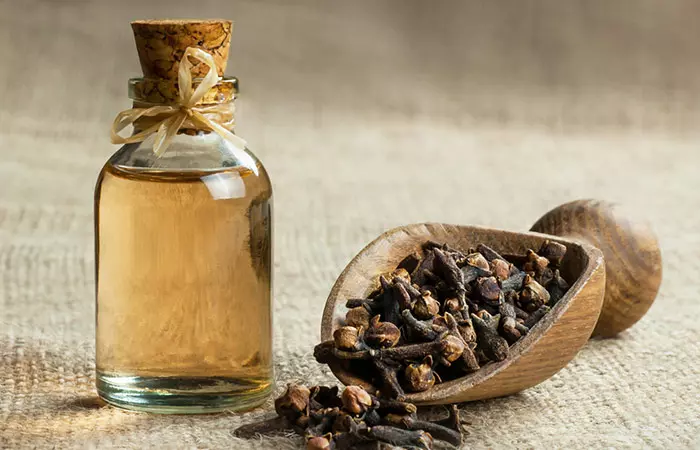
Clove oil is widely used to treat a variety of ailments, including sinus infections. It exhibits antiseptic and antifungal properties (14). These properties can help in reducing inflammation and preventing infection in the sinuses.
You Will Need
- 2-3 drops of clove oil
- A diffuser
What You Have To Do
- Add a couple of drops of clove oil to a diffuser.
- Inhale the dispersed air.
How Often You Should Do This
You can do this once daily.
10. Frankincense Oil
Frankincense oil has antiseptic, anti-inflammatory, and expectorant properties (15). It can provide relief from sinus infections by breaking up the phlegm in your respiratory tracts and relaxing the muscles of your lungs.
You Will Need
- 1-2 drops of frankincense oil
- 1 tablespoon of honey
What You Have To Do
- Add two drops of frankincense oil to a tablespoon of honey.
- Consume this mixture.
How Often You Should Do This
Do this at least once daily.
Caution: Make sure you talk to a doctor before trying this remedy.
Although essential oils can be helpful in treating a sinus infection, you need to take some precautions to reduce unintended effects.
Precautions While Using Essential Oils
- Never use undiluted essential oils directly on your skin. Always dilute them with a carrier oil before application. Alternatively, you can add a few oil drops to humidifiers, diffusers, bath soaks, or water before steam inhalation.
- Do a patch test before applying an essential oil topically. This is because some individuals may be sensitive or allergic to certain oils.
- If you are pregnant or have asthma, use any essential oil only after consulting your doctor and making sure it is safe for you.
- Use essential oils only in the prescribed amounts.
- All essential oils cannot be used for aromatherapy.
- Keep essential oils out of children’s reach.
- You should ingest essential oils only after consulting a qualified practitioner.
Essential oils can be a safe alternative to over-the-counter nasal decongestants. Some of these oils also have therapeutic and aromatic properties that can relieve sinus congestion. However, these oils may not work for everyone. Certain individuals may need to visit a doctor. Know more in the next section.
When To See A Doctor For A Sinus Infection
- Duration Of Symptoms: Consider seeing a doctor if your symptoms persist for more than 10 days.
- Severity Of Symptoms: High fever, a severe headache, or visual disturbances accompanying sinusitis symptoms need further medical evaluation.
- Worsening Symptoms: Consult a healthcare professional immediately if you initially experience relief but the symptoms worsen over time.
- Recurrent Infections: Frequent or recurring sinus infections require medical attention to identify potential underlying causes and adopt preventative measures.
- Underlying Conditions: Individuals with weakened immune systems or chronic health issues should seek medical advice to manage sinus infections effectively and prevent complications.
Your doctor may prescribe you a few medications. In battling a sinus infection, a blogger recounted the prescribed treatment that included amoxicillin for ten days and a different nasal steroid, Q-Nasal. They eventually found relief, stating, “After a few days of congestion, sore throat, headache, etc., I got (mostly) back to normal (i).”
 Quick Tip
Quick TipInfographic: Lifestyle Changes To Manage Sinusitis
The sinusitis pain is unbearable at times and also interferes with daily activities. However, one can manage sinusitis with a few effective home remedies and some lifestyle changes.
The following infographic provides information about lifestyle changes that help lessen sinusitis pain. Check it out! Illustration: StyleCraze Design Team
Sinusitis or sinus infection is a condition wherein the fluid-filled sinus cavity has microbial overgrowth leading to inflammation. Upper respiratory infections, existing medical conditions, or fungal growth can trigger sinusitis and present symptoms such as nasal congestion, postnasal drip, sore throat, facial swelling and pain, headache, and fever. Essentials oils of lavender, eucalyptus, lemon, oregano, peppermint, clove, rosemary, thyme and frankincense are considered to be effective in providing relief from sinus infections and reducing the severity of the symptoms. Take care not to overuse essential oils and follow the usage instructions diligently.
Frequently Asked Questions
Is it safe for babies?
Some of these essential oils are safe for older children. However, consult a healthcare provider before using them on babies.
What is the best essential oil to use for clearing sinuses so that you can sleep better?
Essential oils like chamomile, lavender, and frankincense have sedative properties and can help clear your sinuses while also improving your sleep.
Can swimming cause a sinus infection?
Any viruses, bacteria, or fungi in the pool water can cause inflammation and worsen the symptoms of the sinus infection. Hence, affected individuals are advised to reduce the duration of their swims.
Can I mix eucalyptus and peppermint oil?
Yes, you can. The two oils can help relax muscles, relieve stress, and help clear airways. Their mixture also may have an analgesic effect (16).
How does a doctor check for a sinus infection?
Depending on the severity of the infection, the diagnostic procedures may include a physical exam, nasal swab, endoscopy, or a CT scan.
References
Articles on StyleCraze are backed by verified information from peer-reviewed and academic research papers, reputed organizations, research institutions, and medical associations to ensure accuracy and relevance. Read our editorial policy to learn more.
- Essential oils in the treatment of respiratory tract diseases highlighting their role in bacterial infections and their anti‐inflammatory action: a review, US National Library of Medicine, National Institutes of Health.
https://pmc.ncbi.nlm.nih.gov/articles/PMC7163989/ - Effect of nebulized eucalyptus on contamination of microbial plaque of endotracheal tube in ventilated patients, Iranian Journal of Nursing and Midwifery Research, US National Library of Medicine, National Institutes of Health.
https://www.ncbi.nlm.nih.gov/pmc/articles/PMC4815372/ - Antibacterial activity of the essential oils from the leaves of Eucalyptus globulus against Escherichia coli and Staphylococcus aureus, Asian Pacific Journal of Tropical Biomedicine, US National Library of Medicine, National Institutes of Health.
https://www.ncbi.nlm.nih.gov/pmc/articles/PMC3609378/ - A Review On Peppermint Oil, Asian Journal of Pharmaceutical and Clinical Research, ResearchGate.
https://www.researchgate.net/publication/237842903_A_REVIEW_ON_PEPPERMINT_OIL - Chemical Composition and Anti-Inflammatory, Cytotoxic and Antioxidant Activities of Essential Oil from Leaves of Mentha piperita Grown in China, Public Library of Science One, US National Library of Medicine, National Institutes of Health.
https://www.ncbi.nlm.nih.gov/pmc/articles/PMC4262447/ - In vitro antibacterial activity of some plant essential oils, BMC Complementary and Alternative Medicine, US National Library of Medicine, National Institutes of Health.
https://www.ncbi.nlm.nih.gov/pmc/articles/PMC1693916/ - Antioxidant, analgesic and anti-inflammatory effects of lavender essential oil, Anais da Academia Brasileira de Ciências, US National Library of Medicine, National Institutes of Health.
https://pubmed.ncbi.nlm.nih.gov/26247152/ - [The antibacterial activity of oregano essential oil (Origanum heracleoticum L.) against clinical strains of Escherichia coli and Pseudomonas aeruginosa], Med Dosw Mikrobiol, US National Library of Medicine, National Institutes of Health.
https://pubmed.ncbi.nlm.nih.gov/23484421/ - Rosmarinus officinalis L. (rosemary) as therapeutic and prophylactic agent, Journal of Biomedical Science.
https://jbiomedsci.biomedcentral.com/articles/10.1186/s12929-019-0499-8 - Anti-inflammatory and antinociceptive effects of Rosmarinus officinalis L. essential oil in experimental animal models, Journal of Medicinal Food, US National Library of Medicine, National Institutes of Health.
https://pubmed.ncbi.nlm.nih.gov/19053868/ - Chamomile: A herbal medicine of the past with bright future, Molecular Medicine Reports, US National Library of Medicine, National Institutes of Health.
https://www.ncbi.nlm.nih.gov/pmc/articles/PMC2995283/ - Melaleuca alternifolia(Tea Tree) Oil: a Review of Antimicrobial and Other Medicinal Properties, Clinical Microbiology Reviews, US National Library of Medicine, National Institutes of Health.
https://www.ncbi.nlm.nih.gov/pmc/articles/PMC1360273/ - Effectiveness of steam inhalation and nasal irrigation for chronic or recurrent sinus symptoms in primary care: a pragmatic randomized controlled trial, Canadian Medical Association Journal, US National Library of Medicine, National Institutes of Health.
https://www.ncbi.nlm.nih.gov/pmc/articles/PMC5026511/ - Microbicide activity of clove essential oil (Eugenia caryophyllata), Brazilian Journal of Microbiology, US National Library of Medicine, National Institutes of Health.
https://www.ncbi.nlm.nih.gov/pmc/articles/PMC3769004/ - Frankincense–therapeutic properties, Postępy Higieny i Medycyny Doświadczalnej, US National Library of Medicine, National Institutes of Health
https://pubmed.ncbi.nlm.nih.gov/27117114/ - Effect of peppermint and eucalyptus oil preparations on neurophysiological and experimental algesimetric headache parameters
https://pubmed.ncbi.nlm.nih.gov/7954745/
Read full bio of Dr. Scott Johnson
Read full bio of Shaheen Naser
Read full bio of Arshiya Syeda
Read full bio of Himanshi Mahajan









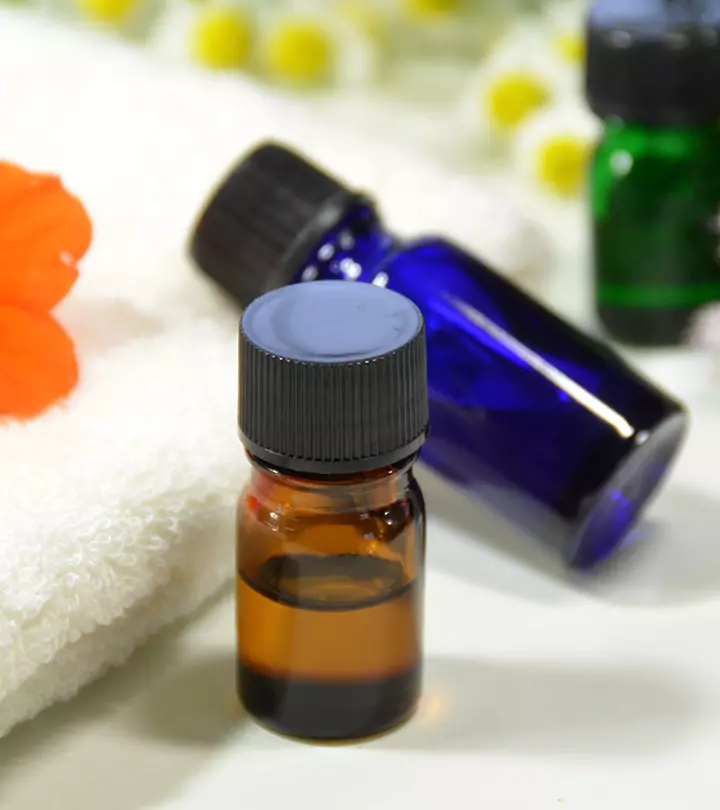
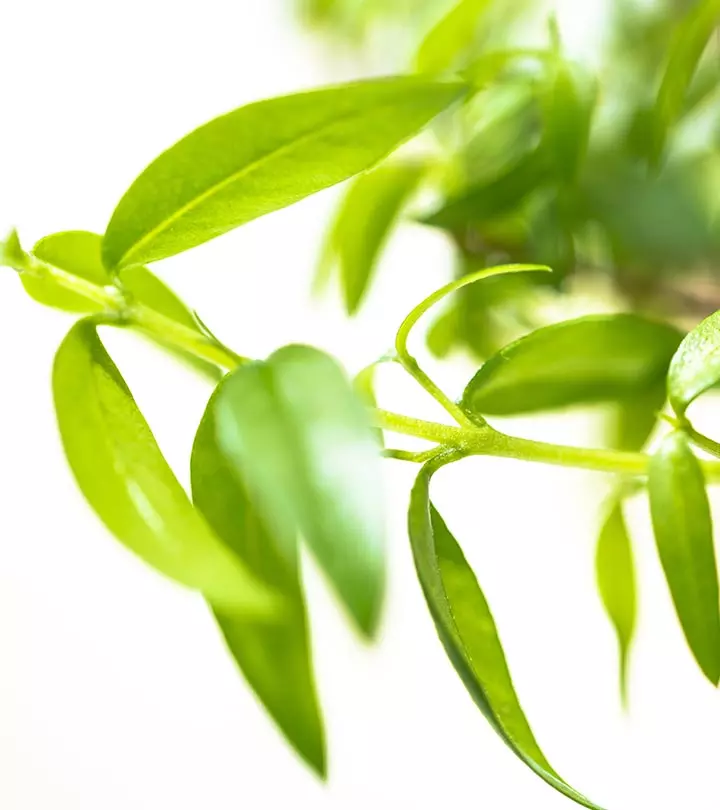
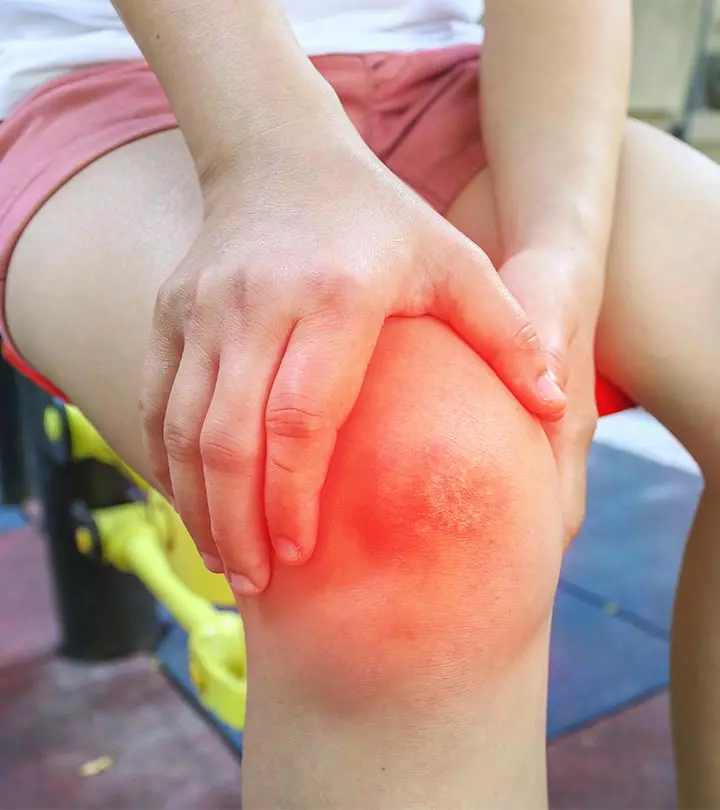

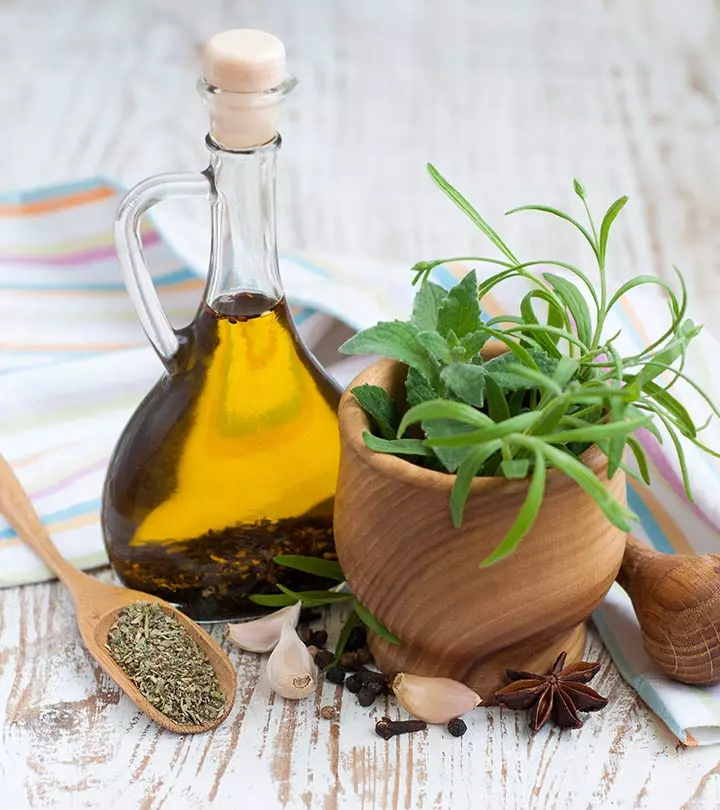


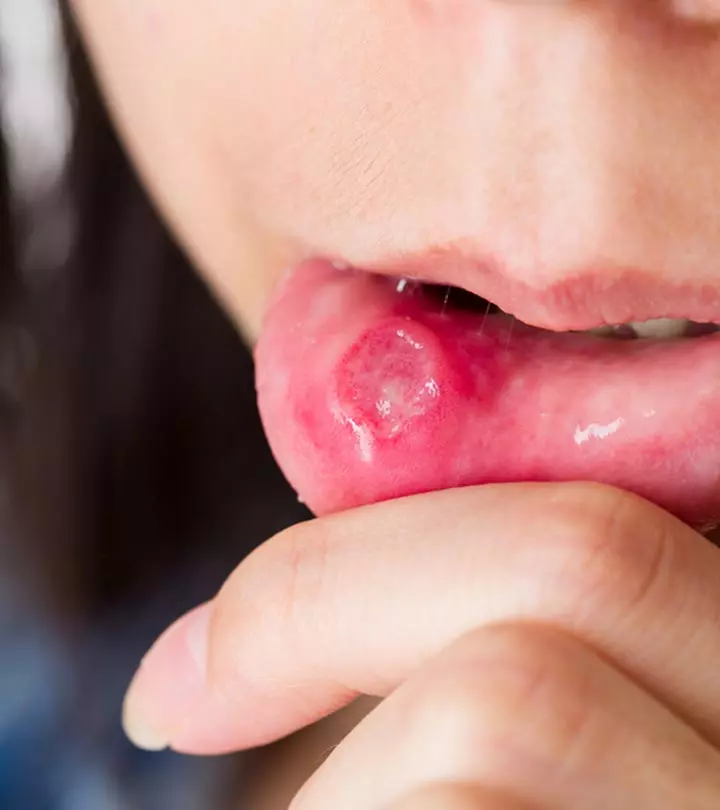




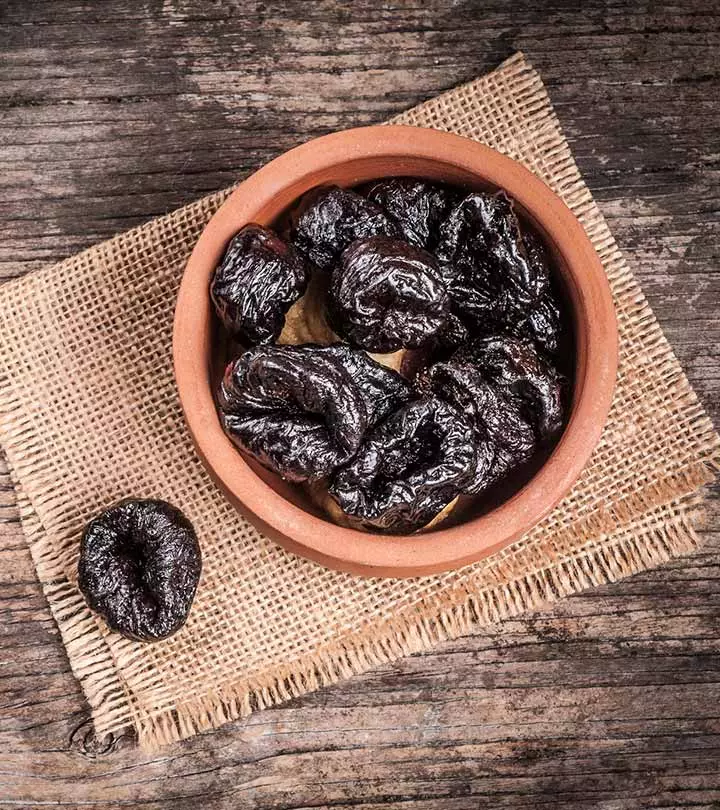





Community Experiences
Join the conversation and become a part of our empowering community! Share your stories, experiences, and insights to connect with other beauty, lifestyle, and health enthusiasts.